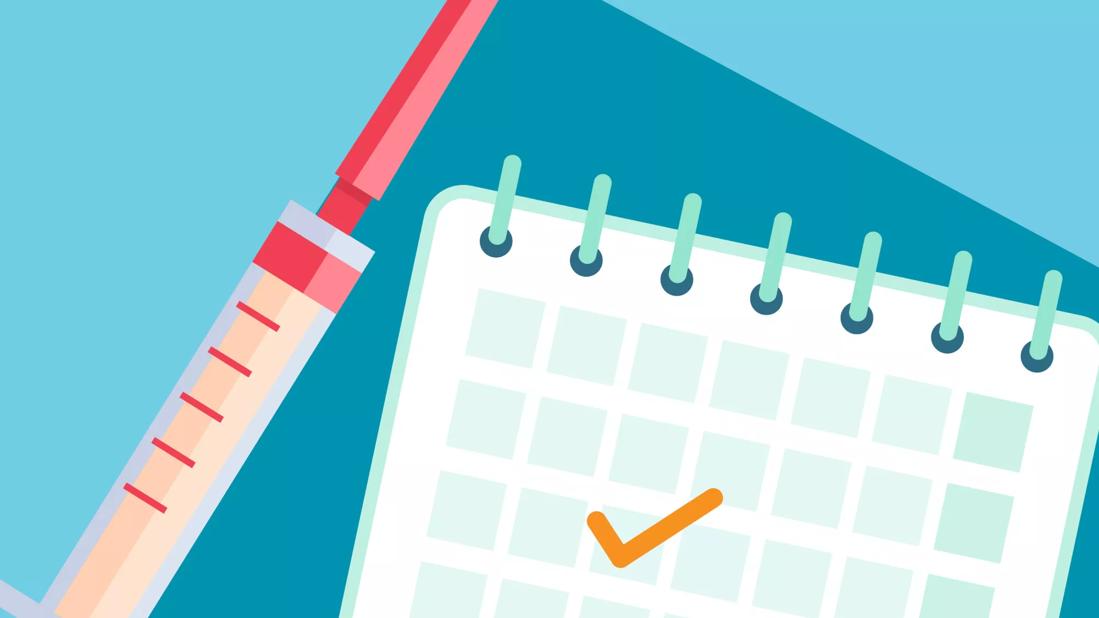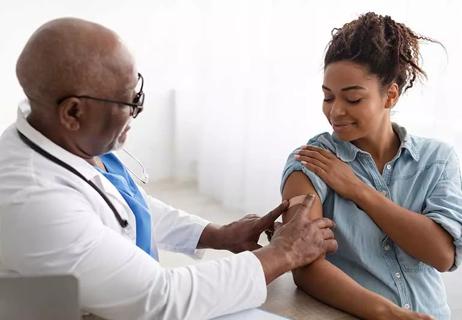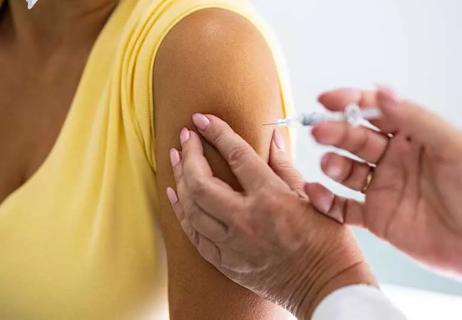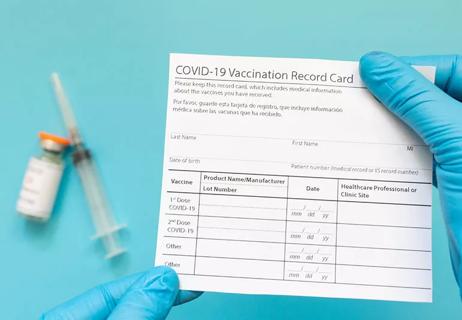Advertisement
An expert gives insight on what to do if you miss that second appointment

Even as social distancing guidelines have rolled back across the county, the spread of new COVID-19 variants shows us why it’s still essential that all eligible people get vaccinated against coronavirus. And that’s why it’s important to know what to do if you miss your second dose of a two-shot vaccine.
Advertisement
Cleveland Clinic is a non-profit academic medical center. Advertising on our site helps support our mission. We do not endorse non-Cleveland Clinic products or services. Policy
As of the July 4th holiday, only 55% of Americans eligible for one of the vaccines (age 12 and up) were fully vaccinated against COVID-19 according to the CDC. This is well below the target for the country to reach herd immunity levels. The constant parade of variants only underscores the importance of hitting this goal and getting as many people as possible vaccinated.
But, for some, the trouble isn’t in getting the first of a two-dose vaccination but in missing the appointment for the second shot. Whether it’s a family or work conflict, a scheduling mistake or simply forgetting, plenty of people are missing their second shot which is crucial for full protection.
To get a better sense of what you should do if you miss that second COVID-19 vaccine appointment, we spoke with pulmonary and critical care doctor Joseph Khabbaza, MD.
“If you’ve missed your appointment, the best advice is to reschedule and get that second dose as soon as possible,” says Dr. Khabbaza. “No matter what the timeframe might be, you’ll still be considered fully vaccinated for COVID-19 two weeks after your second shot.”
While the CDC has established guidelines for the waiting time between doses – 21 days for Pfizer and 28 days for Moderna – the organization also says that a delay of up to 42 days between doses “is permissible when a delay is unavoidable.” But there’s still a lot to learn about how we respond to these vaccines.
Advertisement
“There have been some initial studies that reportedly show there’s no negative effect of waiting longer than 42 days between doses,” says Dr. Khabbaza.
In the United Kingdom, a shortage of available vaccines led to the decision to delay most second doses of the Pfizer vaccine up to 12 weeks so as many people as possible could receive the first dose. In May, a study said that older patients who waited that 12-week interval had higher antibody levels than those who waited the standard 3 weeks between doses.
While these findings indicate you aren’t hurt by a delay between shots, you still should get your second shot as soon as possible. “Even if you have some immunity after the first shot, you want to get to that full immunity as quickly as possible,” says Dr. Khabbaza. “But these studies are important for showing that it’s not too late for your second shot if you miss your appointment.”
The second shot of the two-dose vaccines is essential for reaching full immunity against COVID-19. For instance, studies shared by the CDC showed a single dose of the Pfizer vaccine ranged from 60% to 80% effective against COVID-19. But those studies also showed both doses were 90% effective against COVID-19 with an even higher rate of effectiveness against serious cases of COVID-19.
That full immunity is extremely important for both protecting each person and protecting our communities against the spread of the virus, says Dr. Khabbaza. “Besides helping us reach that important herd immunity status, the vaccines have proven very effective against the mutations and variants we’ve seen so far,” he says.
“The delta variant is getting a lot of our attention now and if you’re fully vaccinated – meaning both doses of a two-shot vaccine – you have very little to worry about,” he adds. “And it’s important to be fully vaccinated to protect yourself against potential future variants.”
The CDC recommends that you do not get your second shot early. You want to give the antibodies generated by the first shot as much time as possible to build up. If there’s a scenario in which getting your second shot a day or two early will prevent a long delay in getting that second dose, consult your healthcare provider for the best course of action.
Life can get busy fast and it’s not uncommon to forget an appointment or for a conflict to arise, requiring a schedule shuffle. Here are some ways you can ensure you won’t miss your window in getting that essential second dose.
When scheduling your doses, make sure your calendar is clear. Double-check that your appointments don’t overlap with any work trips, vacations or other conflicts that will prevent you from making it to get your shot. And, if possible, make sure you prioritize your vaccine appointment over everything else. It’s that important.
Advertisement
Scheduling procedures vary from location to location, but many places will allow you to schedule your second dose when you receive your first shot. If your location doesn’t have this option, be sure to ask questions about their scheduling procedure so you have a good idea of when that appointment will be made.
If scheduling conflicts mean you need to get your doses at different locations, that’s okay. According to the CDC, getting your second shot at a different location than your first shot is okay as long as you get the same vaccine for both doses.
Use email and online calendar reminders to send you alerts so you don’t forget about the appointment. You can often set reminders on your smartphone, as well. Writing down the appointment date and time and placing it where you’ll always see it is a good rule of thumb, too.
Advertisement
Learn more about our editorial process.
Advertisement

Children as young as 6 months should get vaccinated, but dosage guidelines depend on kids’ ages and past vaccines

Updated vaccinations are recommended to better protect against the evolving virus

Redness, swelling, itching and rash can happen when your body’s immune system reacts to the vaccine injection

The latest vaccine offers the most up-to-date protection

Irregularities in cycle length and flow aren’t a cause for concern

Before you panic, here are the options to consider

Our expert explains why swollen lymph nodes happen

And why you shouldn't be so quick to post your COVID-19 vaccine card on social media

If you’re feeling short of breath, sleep can be tough — propping yourself up or sleeping on your side may help

If you fear the unknown or find yourself needing reassurance often, you may identify with this attachment style

If you’re looking to boost your gut health, it’s better to get fiber from whole foods